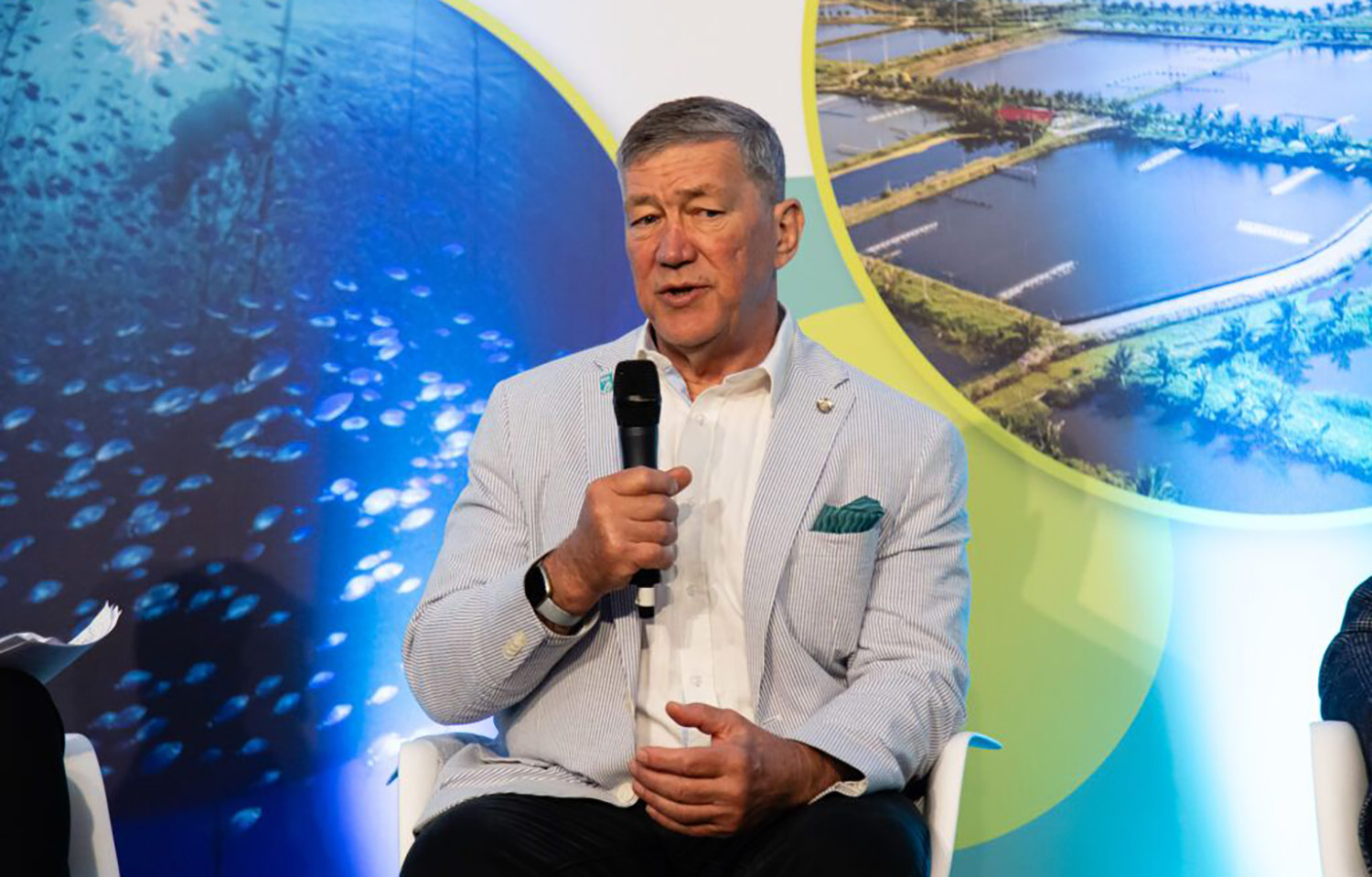Companies, government officials, NGOs, and even some protestors all converged on London, England, to discuss what innovations are needed to maximize the potential of the blue economy.
The 2024 Blue Food Innovation Summit, which ran from 21 to 22 May in London, brought together global seafood industry stakeholders to share knowledge and brainstorm how to scale blue food production sustainably.
During the conference, art collective Ocean Rebellion staged a protest outside the event featuring a rotting tuna, urging people to not buy John West tuna, calling out the tuna sector's problems with bycatch and use of fish-aggregating devices, which are often abandoned, causing environmental damage.
Subjects covered at the event included financing, social licenses, feed, innovation, technology to supply chains, the introduction of new species into aquaculture operations, certifications, education, and effective collaboration.
“Innovation will be key in adapting to rapidly evolving food supply chains in a time when our oceans are under unprecedented environmental pressure,” U.K. Minister of State for Climate, Environment, and Energy Richard Benyon said at the forum.
Scaling up the production of aquaculture feed sustainably was one of the core topics discussed at the summit. It is estimated that the demand for feed will reach 100 million metric tons by 2050, and with limited supplies of sustainable raw materials available for incorporation into fish feed, manufacturers are seeking alternatives such as insects. Simultaneously, the diminishing availability of omega-3 oils from marine sources has seen algae oil and crop oils gaining traction in the space – a trend presenters said could radically alter the industry.
“Crop oils will be a game-changer as alternatives to fish oil and take the pressure off the marine environment,” Paddy Campbell, the vice president of aquafeed-maker BioMar’s salmon division, said.
Aquaculture Stewardship Council CEO Chris Ninnes said greater investments in seafood-sector technology and innovation will inevitably lead to the enhancement of its sustainability.
“At ASC, we see the future adoption of technology as pivotal to delivering increased social responsibility and environmental sustainability and to deliver increased value to our clients,” he said.
Louise Buttle, a global key account manager at Heerlen, Netherlands-based chemical manufacturing company dsm-firmenich, predicted aquaculture firms will gradually shift away from short-term feed contracts and move toward longer-term agreements, which will grant the alternative ingredients industry the ability to expand.
“In terms of investment in novel raw materials early on, new business models are needed,” she said.
More broadly, private-sector financing will be vital in ...








